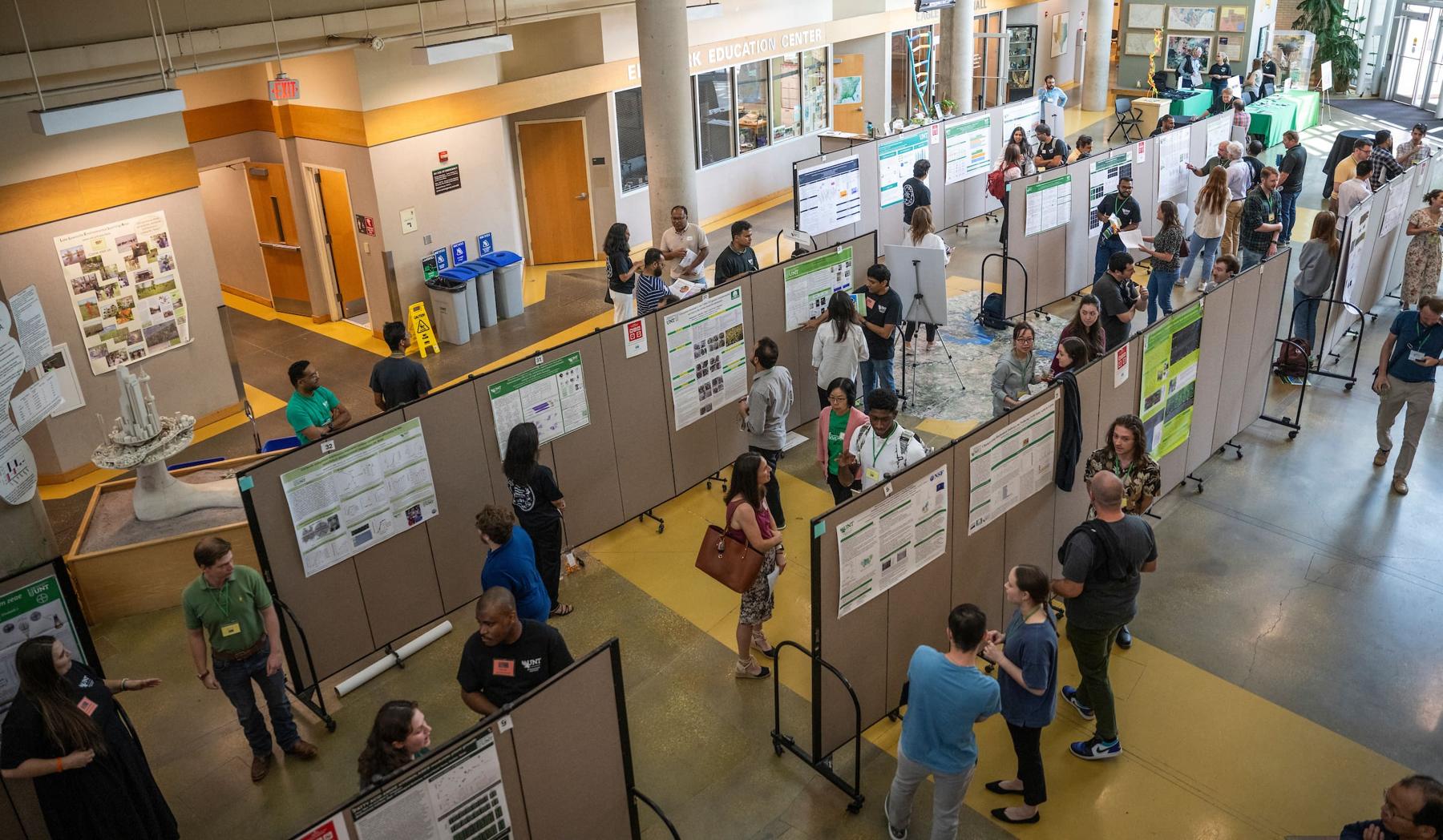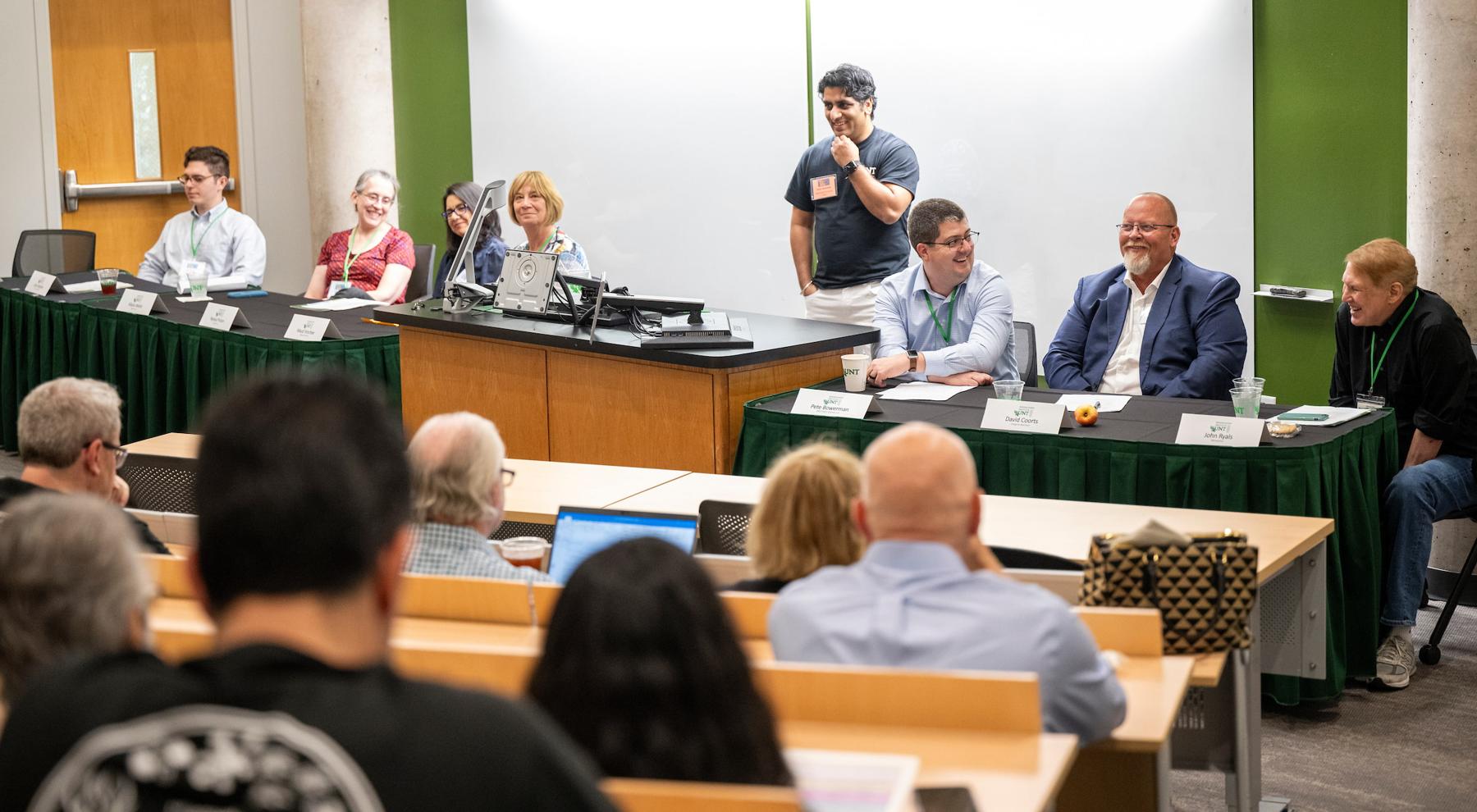
DENTON (UNT), Texas — The University of North Texas BioDiscovery Institute (BDI) kicked off summer break with its inaugural BioDiscovery Research Expo May 15. The day featured nearly 50 student researchers as well as invited professionals from the biotechnology industry.
BDI is a multidisciplinary network of UNT faculty and students working to develop sustainable biotechnologies to address health, food and energy security challenges.
Participants in the research expo showcased their work in addressing these challenges in three categories — biochemistry and molecular biology, biomedical and materials, and computation and bioinformatics.
Topics ranged from creating plant-based alternative fuels and identifying new environmentally friendly sunscreen ingredients to finding better early diagnoses for Alzheimer’s disease and addressing the challenges of predicting local COVID-19 trends.
“BDI wanted to create a platform to showcase its research and increase collaboration among its members,” said Yashu Vashishath, a graduate research assistant in computer science and engineering and the organizing committee chair for the expo.
The expo took place in the Environment Education, Science and Technology building on UNT’s main campus. Students displayed their research posters in the building’s main atrium where judges, visitors and participants could easily ask each other questions. A select group of students and faculty affiliated with BDI gave lightning talks about their research in nearby classrooms.
“We also wanted to help students prepare for the transition to industry from academia with the help of our guests and our students had awesome opportunities to talk to representatives of local companies regarding their future,” said Vashishath. “People were interacting everywhere during the day, which was a great sign of event achieving what it was designed for.”

An industry panel and then a keynote lecture made up the event’s afternoon programming. The industry panel, which included some BDI Executive Advisory Board members, focused on what to expect when transitioning to an industry job and interviewing tips.
One piece of advice the seven-member panel agreed on was learning how to explain a research project to people without scientific backgrounds. Another was being prepared for a more fast-paced environment.
“Also research the company you’re applying for,” said UNT alum John Alptekin (’19, ’23 Ph.D.), who shared how he earned his role as a process development engineer and program manager at Texas Instruments. “I looked into their products and shared in my presentation how my research could fix a problem they once had.”
Joan Bennett, a Distinguished Professor at Rutgers University and a new member of the BDI Executive Advisory Board, presented the keynote lecture. Bennett shared information on the female sex, historical views and roles of women and theories on why women began gaining educations around 1850. Her lecture then delved into why women are underrepresented in STEM fields and shared ways to encourage more women to pursue careers in these areas. She urged the audience to organize, nominate women for awards and mentor more female scientists.
“We can and do have the chance to do the right thing in science. We can shift the status quo,” said Bennett. “Women have brains, and we should be allowed to use them.”
After the lecture, the day closed with awards given to students for best posters and research presentations. Best posters went to Emily Herrell, Jesseca Hemminger, Yao-Chuan Yu, Suman Pandey and Mohammad Al Olaimat. Neha Goud Baddam and Adrian Heckart were recognized for best research presentations. The winners were invited to dinner with BDI director Kent Chapman, Bennett and the industry panel members.
“It was a remarkable event thanks to our students who put it on,” said Chapman, a Regents Professor in plant biochemistry. “The talks and posters were tremendous, and we’re looking forward to next year.”